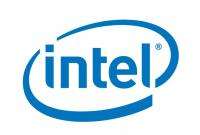Intel denies seeking to derail AMD spin-off

Intel Corp. on Friday fired back at Advanced Micro Devices Inc., denying its rival's charge that Intel was trying to derail a planned spinoff.
But the chip giant strongly suggested that The Foundry Co., the new entity AMD is creating in a joint venture, should not be covered by a patent cross-licensing agreement between the two companies.
If the dispute escalates, Intel's legal argument could complicate AMD's planned venture, which the Sunnyvale, Calif.-based company hopes would ease its enormous financial burdens.
But some analysts say Intel may be using the tussle over The Foundry as leverage in an ongoing legal showdown over antitrust issues. The two companies have been locked in a prolonged dispute over AMD's allegations that Intel unfairly used its dominant position to shut it out of specific markets.
Those charges have, in part, led to antitrust probes in the U.S., Europe and Asia.
The latest controversy flared up Thursday after AMD disclosed a letter that it received from Intel raising questions about the creation of The Foundry Co., a joint venture with the Advanced Technology Investment Co. of Abu Dhabi and the Metadata Development Co., and its impact on the patent licensing agreement.
AMD's spokesman had called the letter "another attempt by our competitor to cause uncertainty" in the company's plan to close The Foundry Co. deal next month.
But Intel spokesman Chuck Mulloy dismissed that, saying, "They are free to do whatever they want," but adding that the company was concerned about the new entity's impact on how far AMD can go in using Intel's proprietary technology under a licensing agreement between the two rivals.
The controversy centers on how The Foundry Co. should be defined based on the patent licensing agreements. AMD says the new entity is a subsidiary and therefore should be covered by the licensing agreement. But Intel counters that the matter isn't so clear-cut.
"What we are concerned about is our intellectual property rights, their licensing rights and whether or not the new company they will form will have the same rights as AMD," Mulloy said. "Clearly, they believe that it does. We have concerns."
Mulloy maintains that Intel is open to making the patent cross-licensing agreement public and is urging AMD to agree to disclose their details. But Drew Prairie, AMD's spokesman, said, "We do not discuss business terms through the media as a matter of practice."
Analyst Brian Puccini of BMO Capital Markets said he would like to see the contract in full, and not just a redacted version, although he also added: "Contracts are rarely black and white. It all boils down to interpretation and, regardless of how AMD interprets the document, there is a risk a judge might differ."
Puccini speculated that Intel may now use the patent licensing dispute to force AMD to back off in its antitrust offensive.
"Absolutely, they would use it as leverage and it's the perfect kind of leverage because it would not appear to be publicly coercive, because settlements are almost always under seal," he said. "Frankly, I'm amazed that AMD is acting like they are surprised Intel is objecting to what is going on. They have been making some headway in the whole antitrust thing and they handed Intel a club with which to beat them."
Puccini speculated that "one way or the other I believe there will be a settlement and ATIC will end up with a license, the terms & conditions of which will be secret. Thereafter, I predict AMD will less zealously pursue its anti-trust complaints against Intel."
Analyst Craig Berger of Friedman, Billings, Ramsey & Co. also said Intel may try to use the patent licensing dispute as a weapon in the two companies' larger antitrust fight.
"That's certainly possible," he said. "I certainly think that could be part of it ... Ultimately, I don't know that it really matters because these things get tied up in courts for 5 to 10 years. This is all just a sideshow."
___
(c) 2009, MarketWatch.com Inc.
Visit MarketWatch on the Web at www.marketwatch.com
Distributed by McClatchy-Tribune Information Services.





















